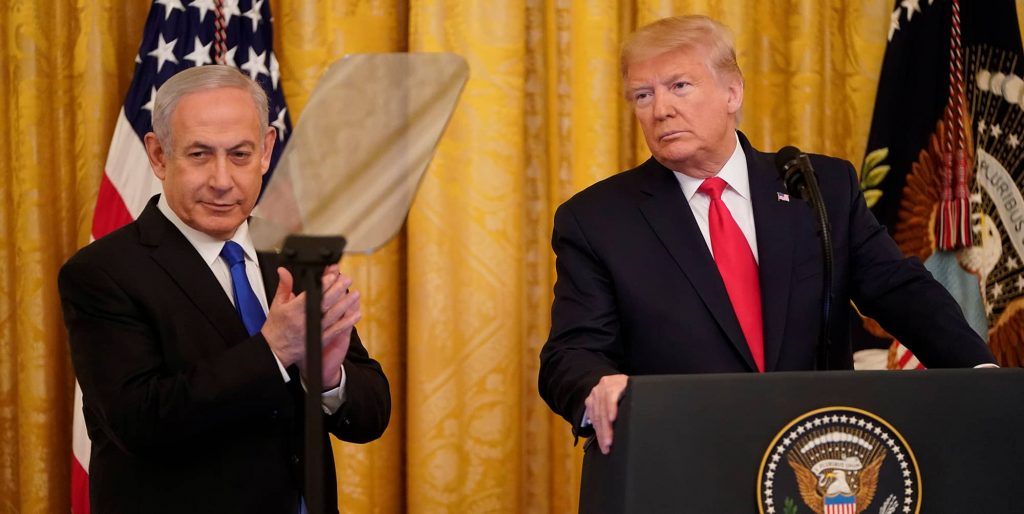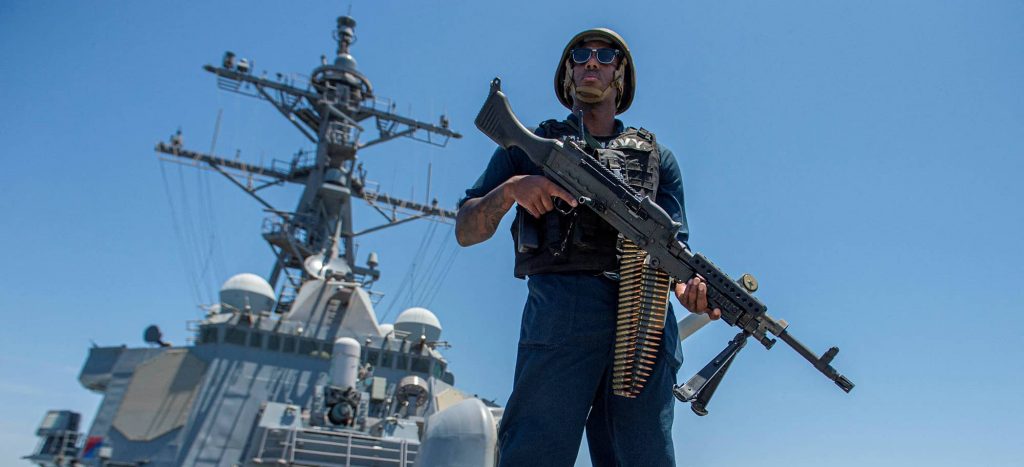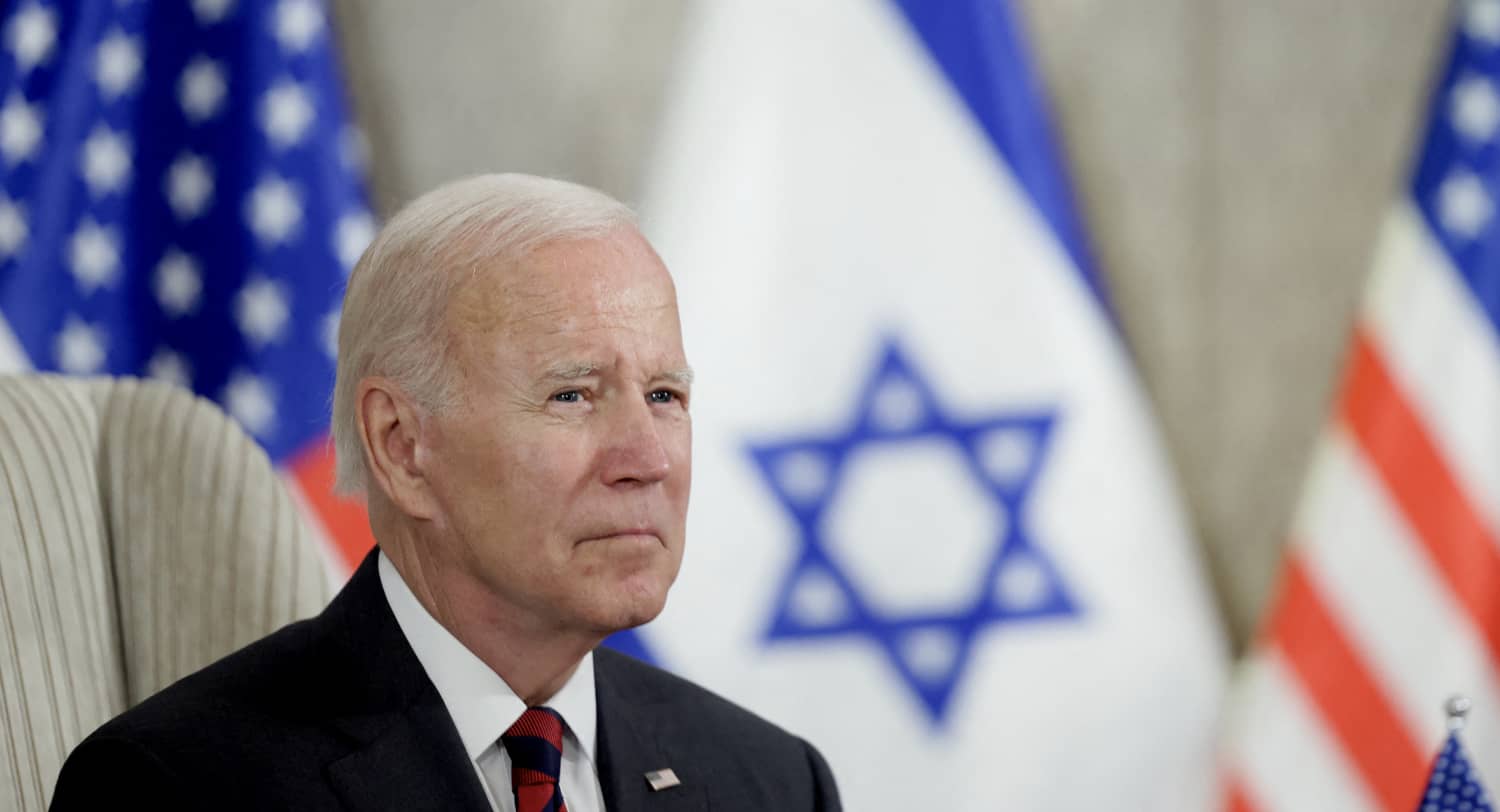A bilateral US-Israel “security deal” or defense treaty is back on the agenda of an Israeli government, according to the press. The Jerusalem Strategic Tribune asked three former senior Israeli officials for their views.
Hunting a Dangerous Trophy
Yair Golan
Let us assume that Israel does put on the table a request for a formal defense treaty. What will the Biden administration ask for in return? At a minimum they would require some concessions on the Palestinian question, if only because the US government would seek to know the borders of the country it has committed to defend. Prime Minister Netanyahu would be expected to curb the radical voices within his coalition. And Israel would be expected to keep silent as America works out a deal of some sort with the Iranian regime.
Netanyahu will surely try to keep several different balls in the air and will continue to send divergent messages in Hebrew and in English. But President Biden is not likely to be taken for a ride. At this stage, Netanyahu is probably tagged as unreliable and ungrateful. Biden was at President Obama’s side when Netanyahu spoke before a joint session of Congress seeking to derail the Iran deal of 2015 and put the Democrats in a political bind, with an eye to the presidential elections of 2016.
The Democrats’ revenge was served cold, as the saying goes. The 2016 US-Israei ten-year memorandum of understanding on security assistance took a significant toll. Dollars to Israel continue to flow – but strictly for acquisition from US industries. Israel lost some $800 million annually which had helped sustain its medium and small businesses in the security sector. Then came UN Security Council Resolution 2334 in December 2016 on the legality of the settlements, which the Obama administration declined to veto.
Biden has been much more cautious in relations with Israel than was Obama, but he will not be dispensing free gifts to a government he does not trust.
A defense treaty would reflect American interests, not Israel’s. Netanyahu would try to portray it as a huge achievement, but in practical terms it could prove to be a highly advertised but actually dangerous trophy to hunt for – as has been the case when Israel pushed for America’s withdrawal from the Iran deal in 2018.
Israelis need to admit that the primary dangers to their country now lie within. Whether the problems lie in our internal tensions, poor economic performance, or the loss of military and civic cohesion, the solutions will not be found in a defense treaty with America or a normalization agreement with Saudi Arabia.

Not an Idea to Reject without Detailed Discussion and Study
Yossi Beilin
The efforts to reach a normalization agreement between Saudi Arabia and Israel, as part of a broader American-Saudi deal, have once again put on Israel’s agenda the idea of a defense treaty between the US and Israel.
The idea has been debated in Israel since the early 1950s, shortly after Israel made the fateful choice of supporting America in response to the communist invasion in Korea in June 1950. Israel’s founding father, David Ben-Gurion, believed that such a treaty would be a vital guarantee for the security of the young state. But NATO would not have Israel as a member. Ben-Gurion explored the prospect again in 1955, in a conversation with the American ambassador in Israel at the time, Edward B. Lawson, and took note of it in his famous diary. But there was never any follow-up.
The Israeli defense establishment of the 1950s did not support Ben-Gurion’s efforts out of concern that such a treaty would limit Israel’s freedom of action and require prior coordination of military action. Ben-Gurion did not give up, however, and again appealed for Israel to be accepted as a full member of NATO. He was rejected again.
After Israel’s astounding victory in the Six Day War of 1967, and through the six years of blindness and hubris which followed, Israel didn’t see a need for such a treaty. The idea resurfaced only after the Yom Kippur War in 1973. At the time, some Israelis thought that had there been a defense pact, the American airlift of arms would have arrived sooner and would have changed the tide of battle earlier.
In 1981, Moshe Dayan wrote in his account of the peace talks with Egypt, two years after resigning as foreign minister, that an offer of a defense treaty by the US would have been an achievement of the first order. Previously, in his years as defense minister (1967-1974), Dayan had opposed the idea. The American side, however, preferred less binding formats, such as a memorandum of understanding on strategic cooperation (1981, reactivated in 1984) and recognition of Israel as a major non-NATO ally in 1987.
In my years at the foreign ministry in the 1990s, I became a firm believer that such an alliance could be an important component of Israel’s deterrent capacity. I had informal talks on this matter with senior Israeli defense figures as well as US administration officials. There was no enthusiasm on the American side for signing a defense treaty as long as the conflict in the Middle East persisted, Israel had no permanent borders, and Israel was not willing to sign the Treaty on Non-Proliferation of Nuclear Weapons. On the Israeli side the main concern was the reluctance to be obliged under treaty to respond to US requests for military deployments in conflicts where Israel has no interest. There was also the fear of losing Israel’s capacity to make independent defense decisions.
Despite these recurring concerns, Israel conducts itself as a US ally without a treaty – for instance, the alacrity with which Israel agreed to withdraw from Sinai after the 1956 War, under an America ultimatum; the decision not to strike first in 1973; the willingness to avoid retaliating against Iraqi missiles in 1992 at American request. In any case, on neither side was there any discernible correlation between political affiliation and the attitude towards a bilateral defense treaty.
In 2019, the idea came up again. As part of Israel’s backing of Trump’s “Deal of the Century” (Jared Kushner’s outline of an Israeli-Palestinian agreement), America would consent to a defense treaty. It was reported at the time that IDF Chief of Staff Aviv Kochavi was in favor – whereas his predecessor, Benny Gantz, saw it as a limitation on Israel’s freedom of action. Ultimately, the “Peace to Prosperity” document – Trump’s plan, as published in January 2020 – did not include this offer. But Netanyahu has remained a firm supporter and thus the idea has re-emerged against the background of the renewed American-Saudi talks.
It is important to recognize that a defense treaty requires a very detailed discussion. It is not a “standard contract.” Israel has certain unique requirements, and should the US prove willing to do so, it can respond to at least some of them. Even if Iran is not (in my view) an existential danger to Israel, it is the most significant security threat. A defense treaty between America and Israel is potentially one of the most significant tools in the struggle against Iran, and thus may be more important than ever.
With or without the Saudi aspect, the positive implications that such a treaty would have for Israel are manifold, whereas the problematic points can be overcome. For example, when British-held territory was attacked in the Falklands War of 1982, the US did not join the fray despite a defense treaty binding both countries. There can be an agreed protocol as to the circumstances under which one country will militarily come to the aid of the other.
Present political and social turmoil in Israel may make it more difficult for the US to consent to the conclusion of a defense treaty at this time. But in principle, I would suggest that we do not dismiss this idea out of hand – certainly not until its details become manifest.

Potential for Damage to Israel’s Deterrence Capability – and for Regional Escalation
Danny Ayalon
A defense treaty between Israel and the US was seriously discussed bilaterally after the First Gulf War of 1991-92, but the details of mutual commitments were not worked out, and the project did not take off.
Since then, some Israeli political leaders occasionally call to revive the prospects of such a treaty. The benefits for Israel are obvious: an American commitment to defend it if attacked, or if its vital interests such as shipping would be threatened, can serve as a powerful deterrent and add to Israel’s defensive posture. This would be true, however, only if the American commitment would be extensive, immediate, and automatic. But the other side of the coin is that such a commitment would require Israel to accept limitations on the broad freedom of action that it now enjoys. Another question is whether such a treaty would require Israel to allocate resources in support of missions and purposes not fully in sync with Israel’s, and would draw Israel into actions that do not serve its interests.
Thus, the pursuit of such a treaty, without reference to its specific conditions, is potentially damaging to Israel’s image in the American public and to its international standing. Today, Israel’s strategic and military strength rests upon its ability to defend itself by itself, while also serving as a key American asset – helping restore regional stability. Moreover, the repeated Israeli position that it will not ask American troops to actively defend it in battle gives it a special status as a self-confident ally able to deter its enemies.
Moreover, Israel’s ability to do without a significant American military deployment (beyond a limited technical presence) is one of the anchors of the traditional backing Israel receives from America. Unlike Japan, South Korea, and Europe, Israel doesn’t host large American forces, thus legitimizing its requests for American weapons which Israel is sometimes the first to receive among America’s friends.
An American-Israeli defense treaty might also trigger escalation by America’s rivals. An Iranian call for a defense treaty with Russia, possibly with China’s backing – and the likely willing response by Russia – would bring the new global power game into the heart of the region and the borders of Israel. The fear of a global conflagration with its focus in our area would intensify, and thus may undo the benefits of a defense treaty with the US.
Finally, a defense treaty isn’t required for joint US-Israel military action. With the threat from Iran rising as it seeks to obtain nuclear weapons, the challenge is directed at America and its US forces in the Gulf, underpinning the growing level of military cooperation. Joint action in the region was facilitated by the move, in 2021, of Israel to the “area of responsibility” of the US regional military command for the Middle East, CENTCOM. Major operations can be undertaken together as necessary, without reverting to the limitations imposed by a formal treaty.



